“I was very, very inspired. I loved to see how the memories speak to other memories and things suddenly get a wider meaning and context. I hope that the workshop was only the beginning of our collective memory work.”
Quote from memory workshop participant
The fall of 2019 was a really busy time for us! In September and October, we brought together the participants of the Reconnect/Recollect project to participate in the memory workshops, which took place in three locations in Europe (Berlin, Riga, and Helsinki) and in Latin America (Mexico City). Thank you all who joined the workshops, shared memories, and worked with us!
We were thrilled by the overwhelming interest among the participants who have connected quickly – and with excitement – through their childhood memories across the various Cold War divides. Our group of participants includes academics at all career stages and established artists, and some participants’ experiences have spanned both academic and artistic worlds. All participants spent their childhoods in socialist and/or post-socialist societies, or on the other side of the Iron Curtain travelling to socialist countries or living close to their borders. Working in this diverse community has expanded not only our own horizons, but also transformed the way we have initially envisioned this project, generating a highly creative space and a productive process for sharing childhood memories.
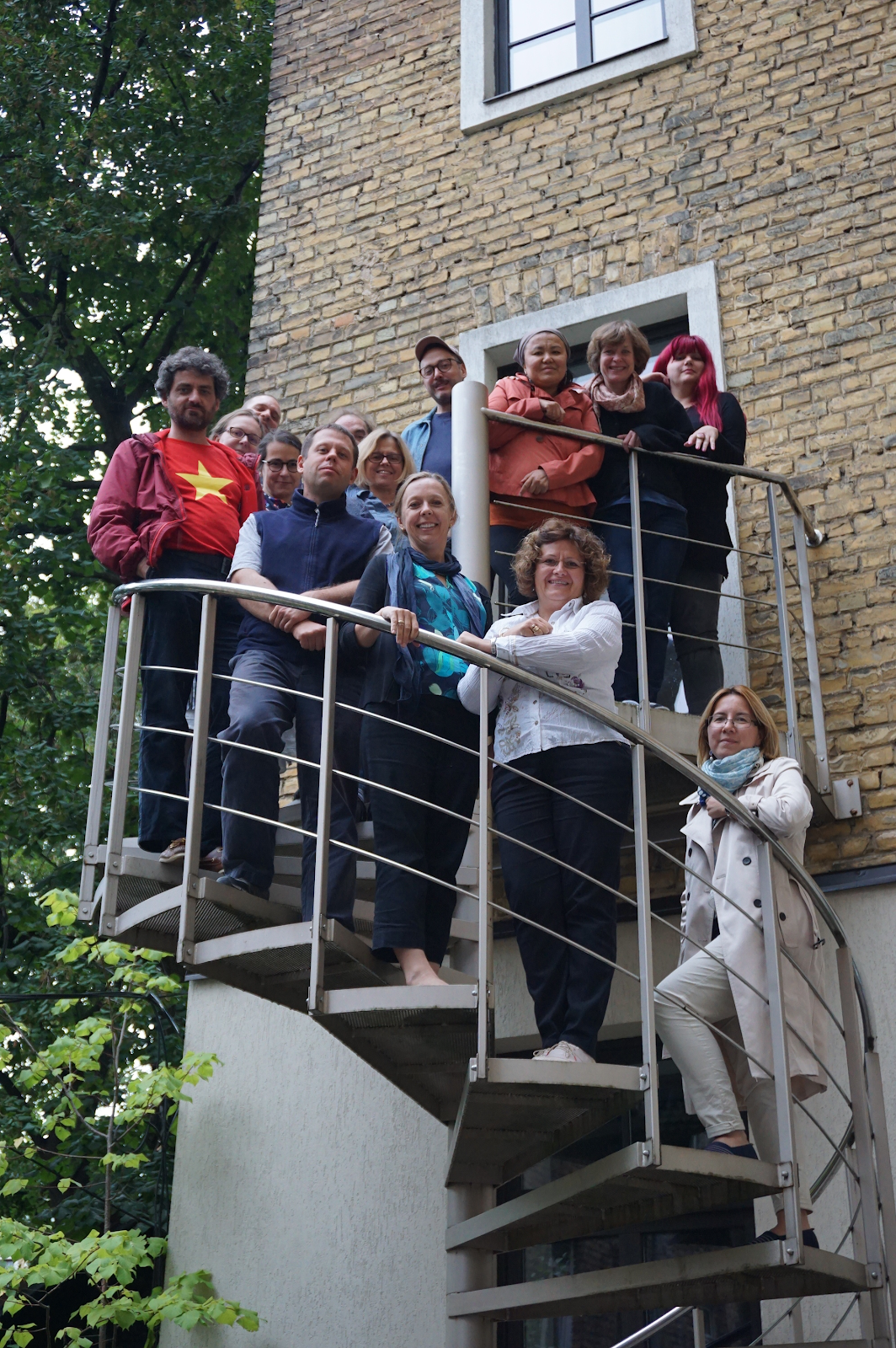
From online memory groups to face-to-face workshops: Building a common ground
The workshops formed a culminating point of a series of activities, which we initiated in the spring of 2019 and implemented in the summer and fall of the same year. At the start, we launched 7 online groups to prepare for the onsite memory workshops in the fall. In addition to the online meetings, we also built an online community within the Slack (workspace) environment. This online environment opened an opportunity for us to get to know each other, share memories, theorize and conceptualize the project further, as well as exchange academic and artistic inspirations and academic literature that kept discussions flowing and ideas evolving. The purpose of the online work was to build a common ground among a diverse group of participants: a common understanding of the overall project aims, its methodology and literature informing the project, and to create cohesive groups from an international group of participants who have met for the first time!
Our hope was that participants would arrive to the onsite workshops knowing each other and ready to share their childhood memories in an intimate atmosphere with people who they know and trust. Despite multiple time zones and geographical distances, this virtual space turned out to be highly conducive to achieving these goals. We all arrived to onsite workshops – whether in Berlin, Riga, Helsinki, or Mexico City – with great anticipation and excitement to finally meet each other in person!
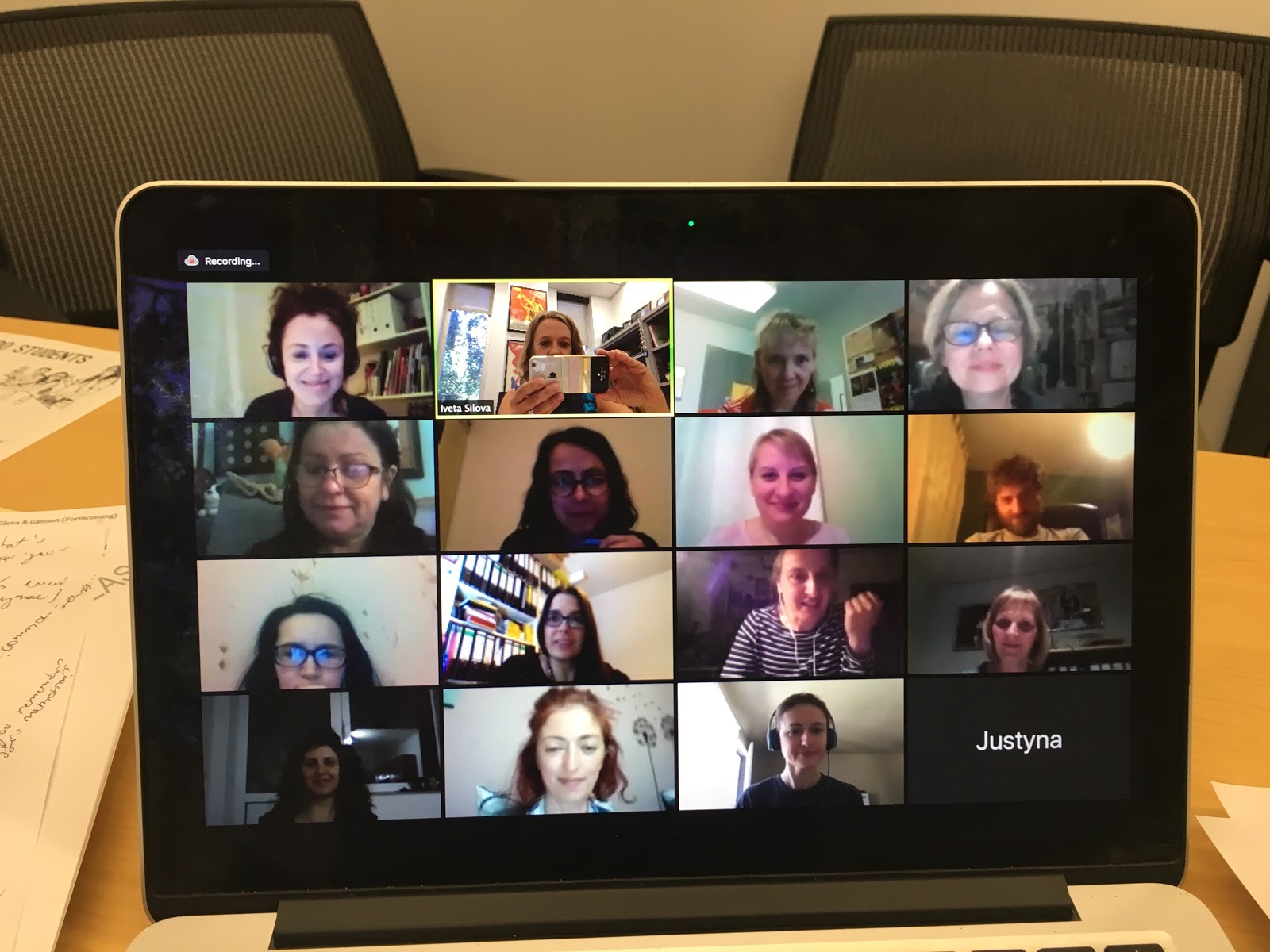
Traveling to workshops: Environmental considerations of travel and space
We have made a decision for our project to proceed in an environmentally responsible way. We have researched the environmental costs of academic work, especially travelling. We have outlined our commitment to these principles in our Low Carbon statement. We kept these considerations at the forefront of our decision-making through the project so far, especially as we were working to bring participants to the onsite locations and organize workshop spaces and catering.
During the fall, we have facilitated 4 onsite workshops, including in Berlin (22 participants), Riga (13 participants), Helsinki (15 participants), and Mexico City (10 participants), convening a total of 60 participants. We have another 9 participants who chose to participate in online memory workshops, which are currently taking place. Combined, our research team has brought together 69 academics and artist participants from 31 countries and 6 continents, including Europe, North and South America, Asia, Africa and Pacific.
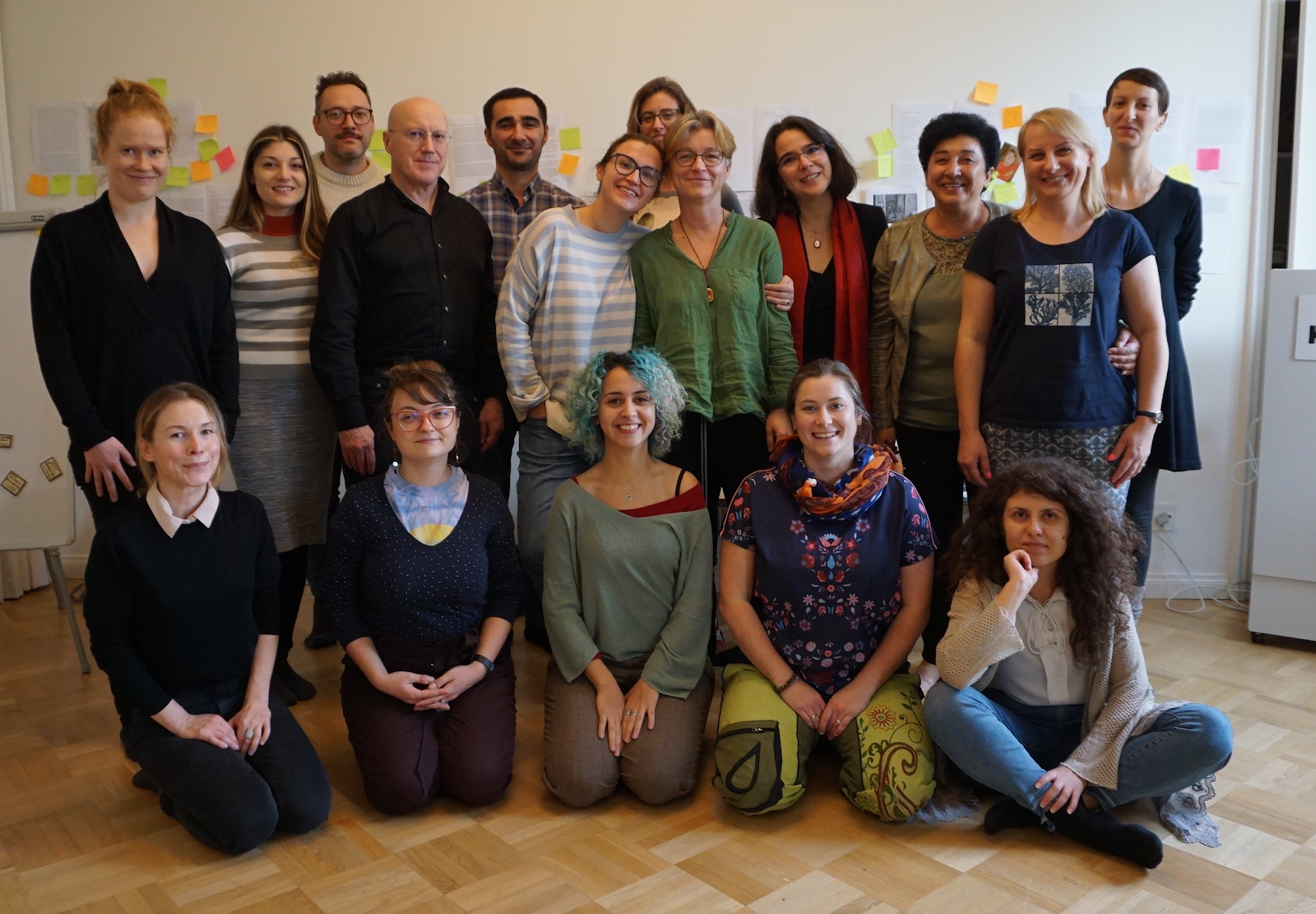
We chose workshop locations based on the travel proximity for all participants, yet we encountered problems when finding the right place for the workshop in Mexico. Our original plan was to hold a workshop on the Mexico/US border, which became challenging due to the unfolding migration politics in the United States. To keep participants safe and travel carbon low, we decided to hold a workshop in Mexico City instead. We distributed travel bursaries to participants to help them offset the costs of (low carbon) travel and visa applications, keeping geopolitical and economic divides still present between scholars in the former ‘second’ and ‘first’ worlds. The bursaries provided travel support for 33 scholars and artists who otherwise would have been unable to join the workshops.
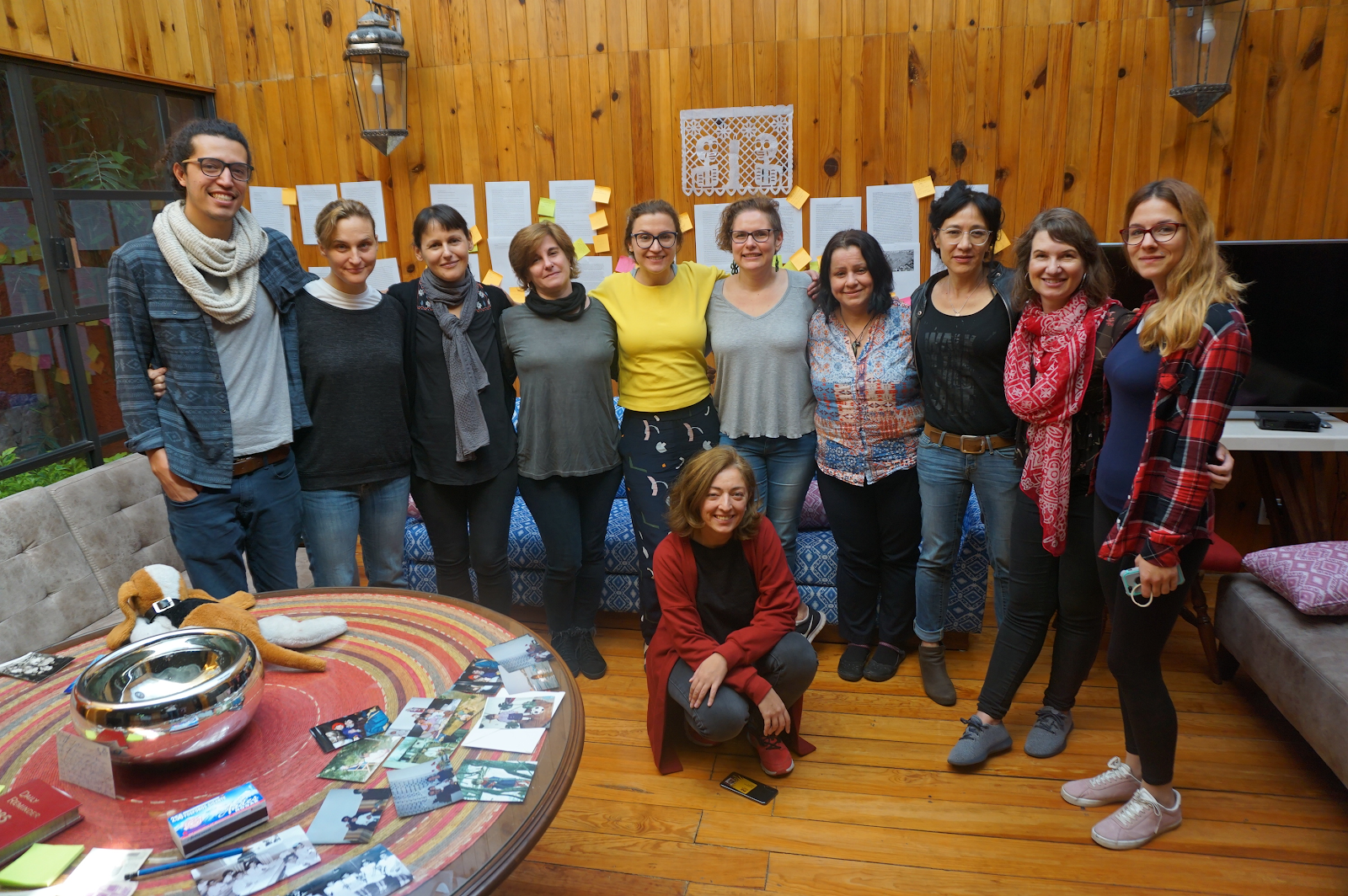
We have selected the workshop spaces in localities where they benefited local communities. In selecting the workshop spaces, caterers, and the choice of vegetarian food, our priority was to address the environmental concerns and benefit local communities whenever possible. For example, our Berlin workshop took place in the Refugio Community Centre, a co-op-style refugee housing, community center, and café supported by the Berlin City Mission (see here for more information). We were warmly welcomed in the Refugio home and enjoyed its beautiful space and delicious vegetarian Persian cuisine catered by its residents.
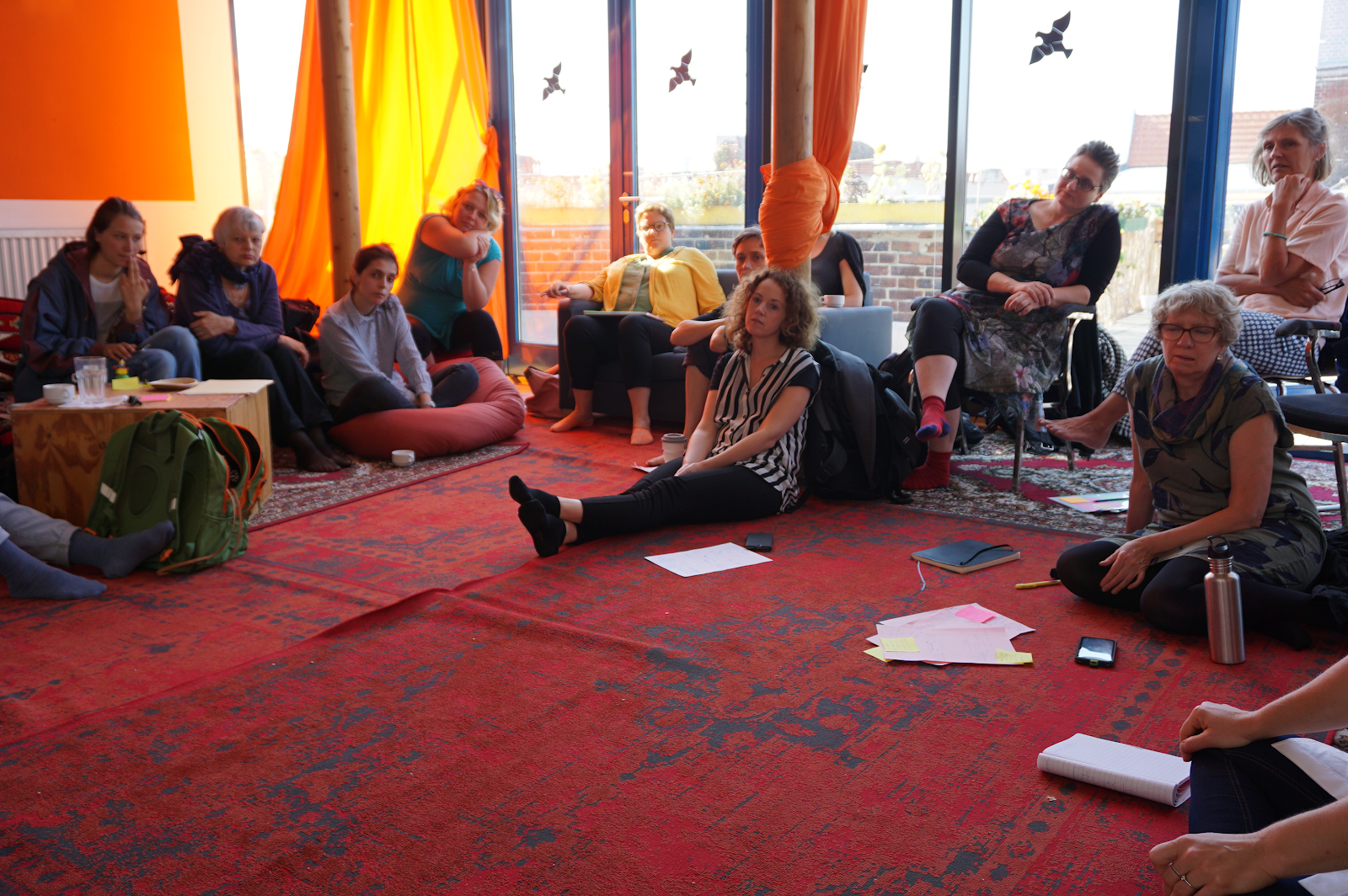
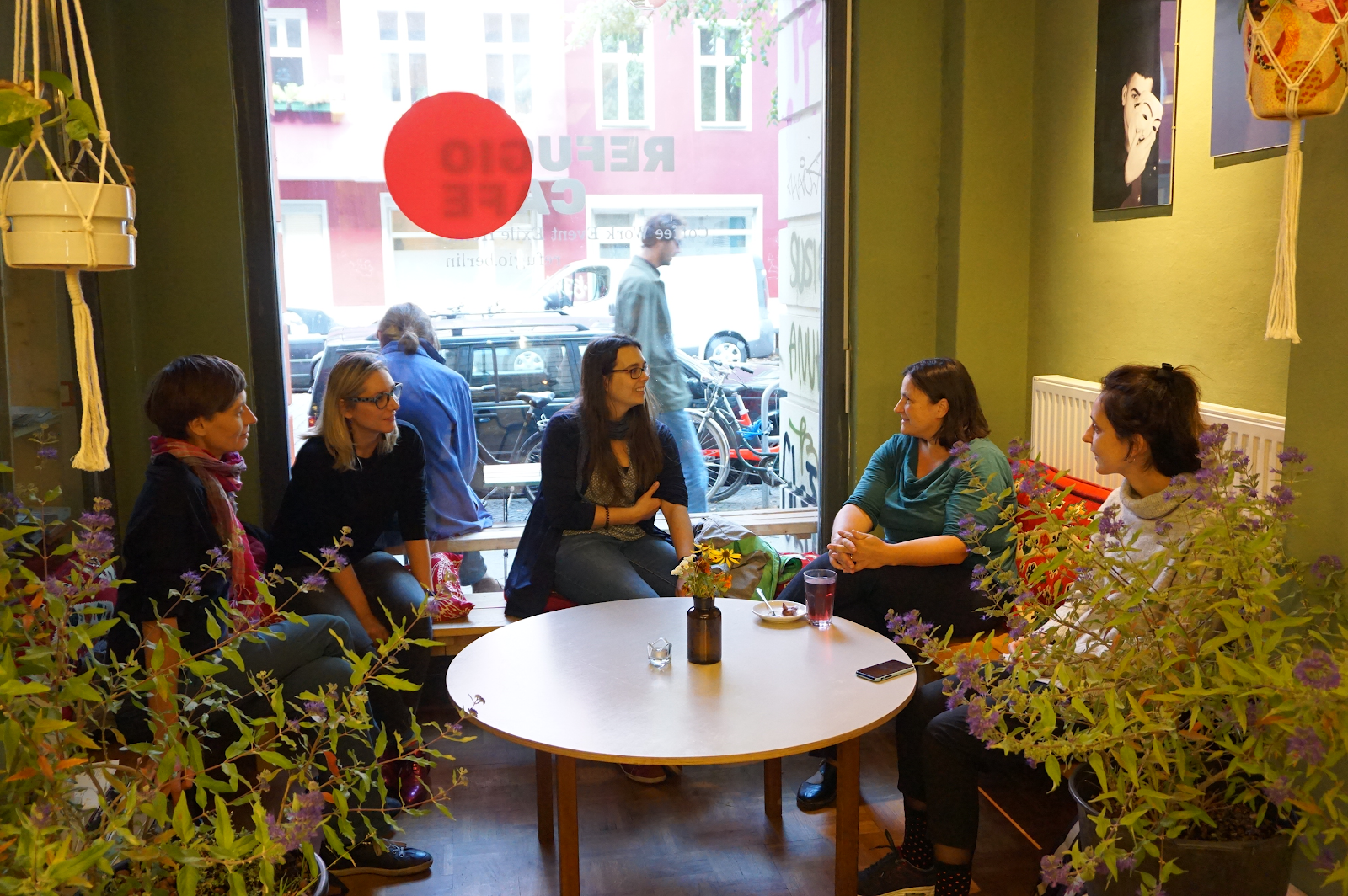
It was challenging and exciting to hold these three-day intensive memory workshops at four international locations ( sometimes unfamiliar to us) and for such such a diverse group of participants (arriving from six continents, speaking multiple languages, and having different expectations). For the success of organizing these workshops, we would like to thank our advisory board who played a crucial role in sharing their local knowledge and connections, as well as their expertise in facilitating the workshops.
The most important and innovative part of the project is to share memories that connect us across multiple divides – between generations from socialist and post-socialist societies, and between people from the former East and West. Memories of childhood experiences offer us a great understanding about how it was to live a daily life in these societies, and provide further insights into how these societies operated from a child’s perspective. In our next blog we will write about the memory workshops themselves – including a glimpse into some of the memory stories! – and the ways in which we have combined memory and artistic engagements with a large number of participants unusual for this method. Stay tuned for further updates!
“I found the comparative component to be the most engaging. It was wonderful to see the themes emerge from our childhoods across a vast geographical scope, and in fact it showed me that many of the features that we thought of as distinct to our respective contexts (cultures, countries, socioeconomic background, etc.) were in fact perhaps more universal to the human condition across a generation.”
Quote from memory workshop participant
Zsuzsa Millei, Iveta Silova, Nelli Piattoeva and Ioana Țîștea
